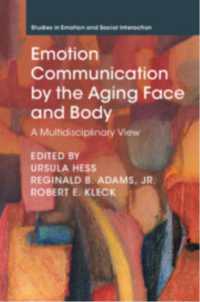Full Description
This book presents new insights into the success strategies of Australian teachers. It analyses interviews with 42 experienced teachers across a range of school contexts to examine "what works" in those contexts. The authors organise teachers' work and identities around ten distinct roles: designers for learning, emotional labourers, narrative constructors and deconstructors, pandemic navigators, policy refractors, relationship brokers, self-regulated learners, situated ethicists, teaching idealists and technology reframers.
The chapters explore two separate but interrelated arcs of analysis simultaneously. Teachers' work is examined around four nodes: complexities, challenges, contradictions and comforts. Five dimensions of that work are considered as well: psychosocial; profession and professionalism; changes and continuities; naming, framing and shaming; and teaching by design. The Australian study is part of a five-nation international research project focused on teacher motivation and resilience, with the other countries including Brazil, Chile, Ecuador and Spain. The authors are affiliated with the University of Southern Queensland, Central Queensland University and the Queensland University of Technology.
What emerges is the understanding that Australian teachers acknowledge the challenging complexity of their work, while they mobilise their constrained agency in innovative ways in diverse contexts. Their success strategies cluster around four distinct types—value-driven, agentic, adaptable and relational—with important implications for current and future teachers alike. It is an essential read for both in-service and pre-service teachers, as well as a viable resource for education researchers and research students, and general lay readers with an interest in the future of education.
Contents
Chapter 1: Conceptualising and Contextualising Australian Teachers' Success Strategies
Abstract
Introduction
The international NARRES study
The Australian research project
The research design
Data collection
Data analysis
Research ethics
The book
Conclusion
References
Recommended further reading
Chapter 2: Teachers as Designers for Learning
Abstract
Introduction
Selected literature
Design and teaching
Design cycles, frames and activities
Design expertise and the basic psychological needs of teachers
Data analysis
Teachers framing their design for learning
Cycles of design for learning
Implications
Conclusion
References
Recommended further reading
Chapter 3: Teachers as Emotional Labourers
Abstract
Introduction
Selected literature
Data analysis
Complexities
Challenges
Contradictions
Comforts
Implications
Conclusion
References
Recommended further reading
Chapter 4: Teachers as Narrative Constructors and Deconstructors
Abstract
Introduction
Selected literature
Data analysis
Complexities
Challenges
Contradictions
Comforts
Implications
Conclusion
References
Recommended further reading
Chapter 5: Teachers as Pandemic Navigators
Abstract
Introduction
Selected literature
Data analysis
Complexities
Challenges
Contradictions
Comforts
Implications
Conclusion
References
Recommended further reading
Chapter 6: Teachers as Policy Refractors
Abstract
Introduction
Selected literature
Data analysis
Audrey: A case of complexities, challenges, contradictions and comforts
Complexities
Challenges
Contradictions
Comforts
Implications
Conclusion
References
Recommended further reading
Chapter 7: Teachers as Relationship Brokers
Abstract
Introduction
Selected literature
Data analysis
Complexities
Challenges
Contradictions
Comforts
Implications
Conclusion
References
Recommended further reading
Chapter 8: Teachers as Self-Regulated Learners
Abstract
Introduction
Selected literature
Data analysis
Complexities and comforts
Challenges and comforts
Contradictions and comforts
Implications
Conclusion
References
Recommended further reading
Chapter 9: Teachers as Situated Ethicists
Abstract
Introduction
Selected literature
Data analysis
Complexities
Challenges
Contradictions
Comforts
Implications
Conclusion
References
Recommended further reading
Chapter 10: Teachers as Teaching Idealists
Abstract
Introduction
Selected literature
Data analysis
Complexities
Challenges
Contradictions
Comforts
Implications
Conclusion
References
Recommended further reading
Chapter 11: Teachers as Technology Reframers
Abstract
Introduction
Selected literature
Data analysis
Complexities
Challenges
Contradictions
Comforts
Implications
Conclusion
References
Recommended further reading
Chapter 12: Celebrating Teachers: Lessons for Teachers and Teaching Nationally and Globally
Abstract
Introduction
Value-driven success strategies
Agentic success strategies
Adaptable success strategies
Relational success strategies
Discussion
Conclusion
References
Recommended further reading
Appendix
Interview Protocol: Emotional Experiences of Australian Teachers








